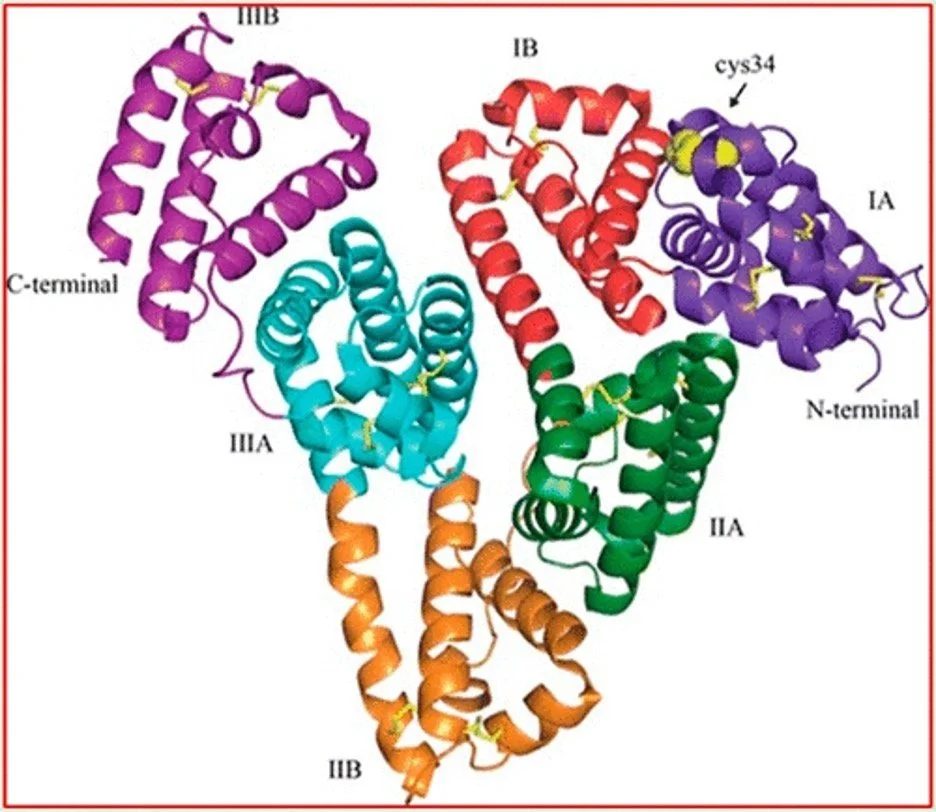Albumin's Role in Delivering Anticancer Compounds Past the Blood Brain Barrier
Albumin is a protein that is synthesized in the liver and comprises about 50% of the total protein in human serum. It plays an essential role in maintaining the osmotic pressure of the blood and transporting a wide range of molecules, such as hormones, fatty acids, and drugs, to different parts of the body. Moreover, albumin is known for its high affinity to bind various compounds, making it an attractive carrier for drug delivery applications.
Drug Delivery
The blood-brain barrier (BBB) is a specialized barrier that protects the central nervous system (CNS) from circulating molecules and pathogens. However, this barrier also limits the delivery of drugs and other therapeutic agents to the brain, which presents a significant challenge in the treatment of CNS diseases, including brain tumors. Albumin, a protein found in blood plasma, has been shown to have a key role in the delivery of anticancer compounds past the BBB.
Albumin from Different Species
While human serum albumin (HSA) is the most studied albumin, other animals also have albumin proteins that have similar functions in their respective bodies. For example, bovine serum albumin (BSA) and rat serum albumin (RSA) have similar structures and properties to HSA but differ in their amino acid sequence. Interestingly, some studies have shown that BSA and RSA have better binding affinity than HSA for certain drugs, indicating that they may be useful as drug carriers.
Mol. Pharmaceutics 2021, 18, 5, 1862-1894
Albumin Delivering Anticancer Compounds
Albumin has been studied as a potential carrier for anticancer drugs due to its ability to cross the BBB through a receptor-mediated transport system called the gp60 receptor. Several studies have demonstrated that albumin-bound paclitaxel (nab-paclitaxel) is effective in treating brain tumors, including glioblastoma multiforme (GBM). In one study, nab-paclitaxel was shown to penetrate the BBB and achieve a higher concentration in brain tumors than conventional paclitaxel, resulting in improved therapeutic efficacy (Desai et al., 2006).
Mol. Pharmaceutics 2021, 18, 5, 1862-1894
In addition to nab-paclitaxel, albumin has also been used as a carrier for other anticancer drugs, including doxorubicin and irinotecan. These albumin-bound drugs have shown promising results in preclinical studies for the treatment of brain tumors. Overall, the use of albumin as a carrier for anticancer drugs represents a promising approach for improving drug delivery to the brain. Ongoing research is focused on optimizing albumin-based drug delivery systems to further enhance their efficacy in treating brain tumors and other CNS diseases.
Conclusion
In conclusion, albumin-based drug delivery systems have shown promise in transporting anticancer drugs past the BBB, which limits the delivery of drugs to the brain. Researchers have developed several albumin-based drug delivery systems, such as albumin-bound paclitaxel (Abraxane®) and albumin-based nanoparticles, that have shown promising results in preclinical and clinical studies. Furthermore, albumin has other applications in medicine, such as the treatment of inflammatory disorders, sepsis, and as a plasma expander and marker for liver function. Further research is needed to optimize albumin-based drug delivery systems and expand its applications in medicine.
If you are interested in human serum albumin or animal derived albumin, please contact us for more information.
References:
Desai, N., Trieu, V., Damascelli, B., & Soon-Shiong, P. (2006). SPARC expression correlates with tumor response to albumin-bound paclitaxel in head and neck cancer patients. Translational Oncology, 9(1), 1-7.


